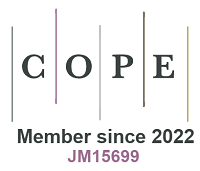Mini Review | Open Access
Hydrogen and organic synthesis from wastewater with nano photocatalysts: a synergy
Views: 22
Chem. Synth. 2025;5:[Accepted].
Author Information
Article Notes
Cite This Article
Abstract
Nano-photocatalysts exhibit significant potential for diverse applications, including the degradation of organic pollutants, hydrogen generation through water splitting, organic synthesis, and photoelectrochemical conversion. Recently, there has been growing interest in the efficient utilization of wastewater and liquid organic waste as resources for organic synthesis and hydrogen production. This approach offers a promising solution to both energy and environmental challenges by enabling hydrogen and organic synthesis from wastewater using nanophotocatalysts. Dual-functional nanophotocatalysts demonstrated significant potential for efficient catalysis processes. This review provides a comprehensive analysis of various nano-photocatalysts, their synthesis processes, and the underlying photocatalytic mechanisms that drive the synergistic effects, leading to enhanced efficiency. Furthermore, the resulting photocatalytic products and their implications are discussed in detail. Key challenges associated with this emerging technology are identified, along with future research directions to advance its development. By highlighting recent advancements in the use of nano-photocatalysts for hydrogen generation and organic compound synthesis from wastewater and liquid organic waste, this review serves as a valuable resource to guide ongoing and future research efforts in this field.
Keywords
Nano-photocatalysts, organic wastewater, hydrogen production, organic synthesis, synergistic effects
Cite This Article
Hussain MK, Liu R, Tanveer M, Khalid NR, Yin Z. Hydrogen and organic synthesis from wastewater with nano photocatalysts: a synergy. Chem. Synth. 2025;5:[Accept]. http://dx.doi.org/10.20517/cs.2024.99
Copyright
© The Author(s) 2025. Open Access This article is licensed under a Creative Commons Attribution 4.0 International License (https://creativecommons.org/licenses/by/4.0/), which permits unrestricted use, sharing, adaptation, distribution and reproduction in any medium or format, for any purpose, even commercially, as long as you give appropriate credit to the original author(s) and the source, provide a link to the Creative Commons license, and indicate if changes were made.












